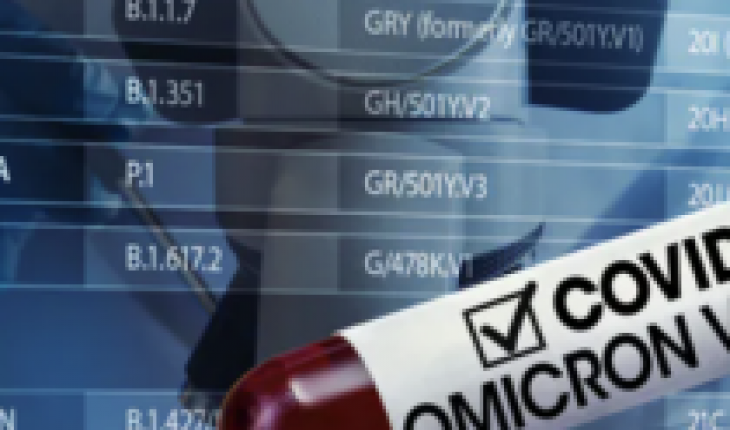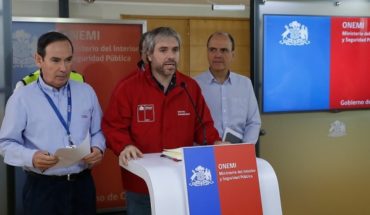December marks two years since the first case of COVID-19. The advances in vaccination campaigns in our country have brought hope, especially for the sector of our society that has been most affected. However, there is no way to ensure an end date for the health crisis. Nor can the authorities say that from now on the situation will improve and not worsen. In this dilemma of uncertainty, there are lights of a possible recovery, but that is only an illusion for developed countries that have had the opportunity to hoard vaccines. In countries with fewer resources the situation is precarious, and that situation is not to blame, but the international community.
Chile has been praised worldwide for its vaccination plan and its good management of the pandemic, although many of the measures that have led us to that place of international prestige meant situations of instability and crisis for the poorest families in our country. According to the DEIS Report of the Ministry of Health (2021), the total target population vaccinated in our country, as of today, corresponds to 87.1%, with at least one dose. Likewise, at the international level, according to Our World In Data (2021), Chile is in fourth place among countries with the most vaccinated population. In this way, this advance that has occurred in our country, has meant a great advance in terms of implementing less restrictive measures during the last months, which have allowed the labor reactivation, as well as an emergency exit for the serious mental health problems that were aggravated during the crisis.
Taking into account only vaccination today, without the measures of restrictions, Daily Cases, ICU Cases and Daily Deaths, have been reduced significantly in our country, unlike the most horrific moments we have lived, where, as of November 28, 38,313 people have died in Chile due to COVID-19 (Framework Data, 2021). Now, if there are fewer infections, we have opened the border and even the clubs to resume our lives more normally, why do the variants scare us so much at this point? Why are we afraid again?
What is ómicron? How does the international community react to this variant of COVID-19?
Ómicron is a variant of COVID-19, the last detected. We already have knowledge of the Alpha, Beta, Gamma and Delta variants. However, the particular thing about the Ómicron variant is the important difference to the original version of COVID-19, which could mean more lethality, more contagion and even immunity to vaccines (BBC World, 2021). Although none of these three points is proven yet, the international community has shown concern about this variant found in Africa, even several countries have closed their borders exclusively to travelers coming from the African continent.
According to UNICEF, “When a virus circulates widely and causes numerous infections, it increases the likelihood that the virus will mutate. The more opportunities a virus has to spread, the more opportunities it has to undergo change” (Unicef, 2021). In this way, to stop the mutation, vaccines are essential. However, the more developed countries are the only ones that have been able to protect themselves from the health crisis, and the less developed countries are most at risk from the emergence of a new variant, which also means a danger for the rest of the world. In fact, according to the current problems of Africa, BBC News has interviewed Ayoade Alakija, co-director of the African Alliance for vaccine delivery, where he has assured that the ómicron variant is the inevitable result of the hoarding of vaccines by developed countries and the exclusion of the African continent (Ayoade Alakija in BBC News, 2021).
According to El País (2021), only 7% of the population of the African continent has received the full vaccination schedule. This situation is due to two factors: on the one hand, to “the logistical problems faced by vaccination campaigns in countries with limited resources and the rejection of a part of the population” (El País, 2021); and, on the other hand, we have the hoarding of vaccines by the most developed countries. In fact, the United Nations, in January of this year, commented that “while 39 million doses of vaccines have been distributed in 49 high- and middle-income countries, in a single country of entry.only 25 people have been immunized” (United Nations, 2021). And the current situation has not changed. While governments like Uruguay announce the opportunity for vaccines to foreign tourists, the lowest-income countries struggle to vaccinate their own populations.
Tedros Adhanom, director of the WHO World Organization, said that “the ‘me first’ approach not only puts the world’s poorest and most vulnerable people at risk, but is also counterproductive, and ultimately actions of that kind will only prolong the pandemic, the restrictions needed to contain it, and human and economic suffering” (United Nations, 2021). In this way, the call for cooperation has been given from different paths; solutions such as the liberalization of vaccine patents and the equitable allocation of vaccines in different countries are issues brought to the fore for debate. In fact, COVAX, the Cooperation for Global Equitable Access to COVID-19 Vaccines initiative, which aims to accelerate the development and manufacture of COVID-19 vaccines to ensure fair and equitable access to them for all countries around the world (WHO, 2021), is an important initiative to stand in solidarity with countries where vaccination has been a struggle.
We definitely want to think that history gives us lessons, however, if we evaluate the current scenario and understand the real dangers of countries worrying about their own belly buttons we will not be able to feel lights of international progress. However, now it remains to trust that the governments of the different countries of the world, together with the International Organizations, will take the right path of international cooperation to generate real progress in the end of the pandemic, but also to save millions of lives that are currently in danger.
The content expressed in this opinion column is the sole responsibility of its author, and does not necessarily reflect the editorial line or position of El Mostrador.
The ómicron variant: responsibility of the international community
December 4, 2021 |





